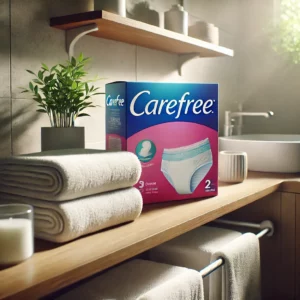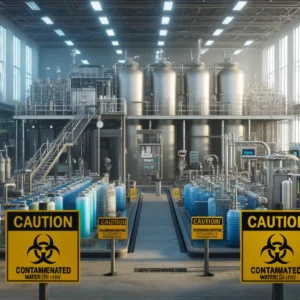Harvard Medical Expert Calls for Immediate Stop to Fragrance Use
Dr. Trisha Pasricha, a professor of medicine at Harvard, urged consumers to stop using perfumes and colognes due to their connection to cancer and infertility. Phthalates, chemicals used to extend fragrance longevity, don’t break down in the human body and disrupt natural hormone production. The FDA permits nine different phthalates in cosmetic products, while European regulators allow just one. California’s Proposition 65 has identified six phthalates as known carcinogens and reproductive toxins.
5 Key Points
- Phthalates in fragrances disrupt natural hormone production and response.
- Women show consistently higher phthalate levels than men due to beauty product use.
- A 2016 study found teenage girls reduced their phthalate levels by 50% after switching to fragrance-free products.
- Restaurant food consumers showed 35% higher phthalate levels than home-cooked meal eaters.
- The FDA allows nine phthalates in cosmetics, while Europe permits only one.
Chemical Compounds Behind Fragrance Longevity
Phthalates, a class of chemicals known as “forever chemicals,” earned their name because they don’t break down in the human body. These substances serve as plasticizers, making products more pliable and extending the longevity of fragrances in personal care items. Dr. Pasricha revealed that phthalates appear in roughly three-quarters of scented personal care products, from deodorants to shampoos and lotions. Beyond beauty products, these chemicals permeate daily life, appearing in plastic food wraps, vinyl flooring, garden hoses, and shower curtains. The substances work by imitating the body’s natural hormones, disrupting the production of and response to essential hormones like estrogen and testosterone. This interference creates a cascade of potential health problems, supported by what the Endocrine Society called “irrefutable evidence” linking these substances to obesity, diabetes, infertility, and various cancers.
Women and Minorities Face Higher Exposure Risks
Research has revealed concerning disparities in phthalate exposure. Women consistently show higher levels in their bodies than men, likely due to their higher use of beauty and personal care products. Recent studies have identified that ethnic minority women in the US experience higher exposure during pregnancy than their peers. The impact on fertility has proven particularly troubling. A study published in Toxicological Sciences found female mice exposed to phthalate mixtures in the womb – at levels matching those detected in pregnant women – developed fertility issues they then passed to their female offspring. Additional research linked higher phthalate levels in women’s urine to reduced pregnancy likelihood and increased risk of pregnancy loss before 20 weeks gestation.
Childhood Development Under Threat
Researchers examining 200 adolescents found a 25% increased risk of hyperactivity issues connected to higher urinary concentrations of phthalates from personal care products. The same research team discovered that increased exposure correlated with decreased mathematical performance, particularly among students under stress. The National Institutes of Health identified additional risks from fragrance compound musk ambrette, linking it to early puberty in girls as children and teens begin wearing makeup and perfume at younger ages. While the FDA removed musk ambrette from its list of “generally recognized as safe” fragrances, and both Canada and the EU restrict its use, NIH researchers have detected it in water sources and fragrances sold on platforms like Amazon and Etsy. Early puberty carries significant health implications for girls, including elevated risks of obesity, heart disease, breast cancer, and psychological challenges.
Male Fertility and Cancer Connections
A Polish study demonstrated that phthalate exposure in men reduced both sperm quality and count, diminishing conception chances. Beyond reproductive concerns, phthalates have been classified as possible human carcinogens, particularly affecting hormone-related cancers. Research published in Breast Cancer Research revealed an alarming 32% higher risk of hormone receptor-positive breast cancer in individuals with elevated urinary phthalate levels. The thyroid, which plays a crucial role in hormone production, also faces increased cancer risk from these chemical compounds.
Regulatory Divide Between the US and Europe
While the FDA maintains that it lacks sufficient evidence to declare phthalates in cosmetics a safety risk, other regions have taken decisive action. The European Union permits only one phthalate in cosmetic products, compared to nine allowed in the United States. California’s Proposition 65 legislation has identified six phthalates as known carcinogens and reproductive toxins, requiring warning labels for products containing these chemicals. Despite these concerns, the FDA continues to allow nine phthalates in food contact applications, such as plastic containers and cans, though direct addition to food remains prohibited.
Practical Steps for Consumer Protection
Dr. Pasricha offered evidence-based solutions to reduce phthalate exposure. A 2016 California study demonstrated remarkable results when 100 teenage girls switched to fragrance-free personal products for just three days – their urinary phthalate levels dropped by half. “I recommend avoiding added fragrances altogether — in perfumes, scented lotions, shampoos, even scented detergents and antiperspirants,” she advised. The doctor also recommended limiting consumption of restaurant and processed foods, citing a 2018 George Washington University study that found 35% higher phthalate levels in people who frequently ate restaurant meals than those who prepared food at home. “As a doctor, I know we sometimes need to pick our health-care battles wisely,” she wrote, adding, “But what we’re discovering about how exposure to EDCs impacts an individual’s sperm or egg cells is deeply concerning.”
A Call for Consumer Awareness and Action
The presence of phthalates in everyday fragrances has created an urgent public health challenge that spans from personal care products to food packaging. While the FDA reviews these chemicals’ safety, Dr. Pasricha’s warning adds to a body of research documenting their effects on human health – from cancer risks to fertility problems and childhood development issues. The stark regulatory differences between the US and Europe highlight the need for American consumers to make informed choices about their exposure to these persistent chemicals. As studies continue to demonstrate the effectiveness of avoiding fragranced products, Dr. Pasricha’s guidance offers a clear path forward: minimize exposure to phthalates by choosing fragrance-free alternatives and preparing more meals at home. With three-quarters of scented personal care products containing these compounds, consumers’ daily choices about perfumes, colognes, and other fragranced items carry lasting implications for their health and the health of future generations.
FAQ
Q: Can I file a lawsuit if I was exposed to PFAS or other forever chemicals?
A: If you or a loved one suffered health issues from exposure to PFAS or other forever chemicals, you may be eligible for legal action. Contact our legal experts to learn about your rights and start a free, confidential case review.
Q: How can I identify products that contain phthalates?
A: Look for ingredients listed as “fragrance” or “parfum” on personal care products, as these often contain phthalates. Choose products specifically labeled as “phthalate-free” or “fragrance-free.” Everyday personal care items containing phthalates include perfumes, deodorants, nail polish, hair gels, shampoos, soaps, and lotions.
Q: Why do women have higher phthalate levels than men?
A: Women typically show higher phthalate levels because they use more personal care and beauty products containing these chemicals. Research indicates that about three-quarters of scented personal care products contain phthalates, and women generally use more of these products daily than men.
Q: What specific health risks do phthalates pose to children?
A: Studies show phthalate exposure in children linked to a 25% increased risk of hyperactivity issues, decreased math performance (especially under stress), and early puberty in girls. Early puberty carries additional risks, including obesity, heart disease, breast cancer, and psychological problems.
Q: How quickly can reducing exposure to phthalates affect the body?
A: Changes can occur rapidly. The 2016 California study of 100 teenage girls showed that switching to fragrance-free products for just three days reduced their urinary phthalate levels by up to 50%.
Q: What practical steps can I take to reduce my phthalate exposure?
A: Dr. Pasricha recommends avoiding all fragranced products, including perfumes, scented lotions, shampoos, detergents, and antiperspirants. Choose products labeled “fragrance-free” or “phthalate-free.” Limit consumption of restaurant and processed foods, as people who eat more home-cooked meals show 35% lower phthalate levels.
Q: How do US regulations on phthalates compare to other countries?
A: The US allows nine different phthalates in cosmetic products, while the European Union permits only one. The FDA reviews phthalate safety but hasn’t declared it a risk despite other countries implementing stricter regulations. California’s Prop 65 requires warning labels for six phthalates identified as carcinogens.
Citations
Emily Joshu Sterne (December 3, 2024). Doctor urges people to stop using everyday beauty product over ‘irrefutable evidence’ it causes cancer. Daily Mail. https://www.dailymail.co.uk/health/article-14153373/doctor-everyday-beauty-product-evidence-cancer-hormone-damage.html






